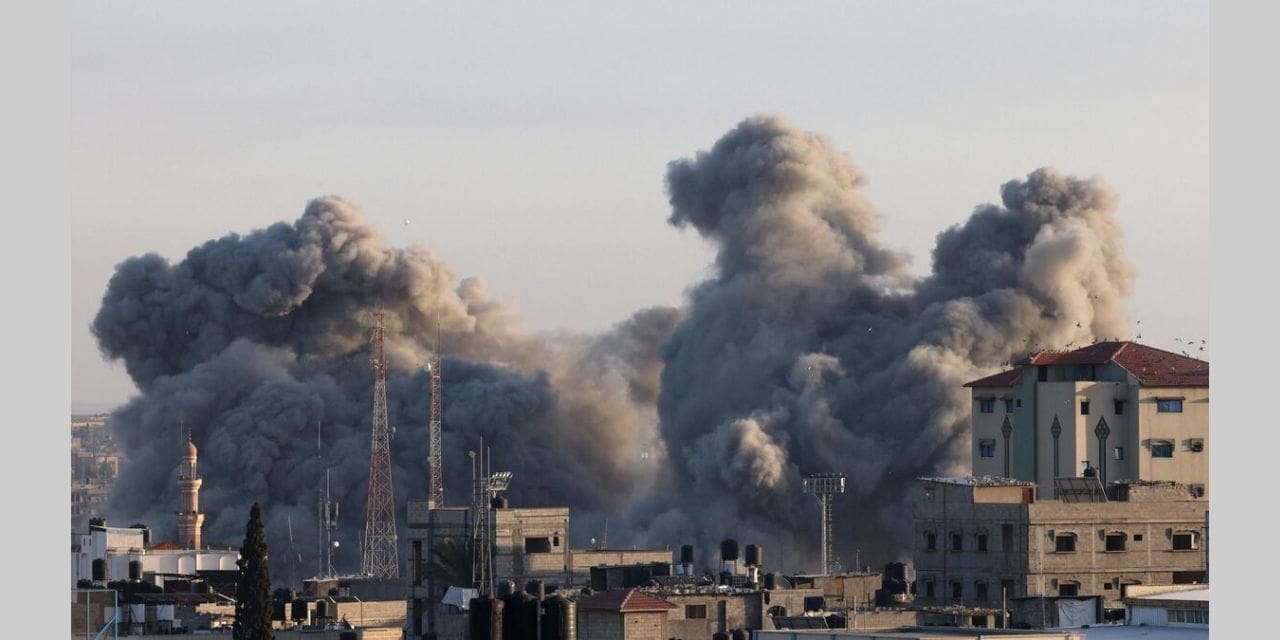The Israel-Hamas conflict has rippled through the global markets with its ever-changing tensions and political uncertainties. These turbulent times have posed a real challenge for India’s textile industry, which is not just a conglomerate of businesses but a tapestry of livelihoods. To remain resilient in this unpredictable scenario, diversifying markets has become essential.
- Strong Assistance –
The Indian textile industry has maintained a strong and mutually beneficial relationship with Israel. In recent years, bilateral trade between the two nations has been on an upward trajectory, with India exporting textiles and apparel to Israel. From September 2021, India’s textile and clothing exports to Israel reached approximately $438 million in 2020-21, making India the 2nd largest exporter of textiles worldwide. India exported textile products worth $160 million to Israel in FY23 of $8.4 billion outbound shipments to the country. This trade partnership demonstrates the resilience of economic ties between the two nations, showing that trade can transcend geopolitical tensions and play a pivotal role in fostering cooperation between countries, even in challenging times.
- Exploring New Territories
India’s textile exporters are embarking on journeys to uncharted territories like Australia, Canada, and South Africa. They’re not just chasing numbers. They’re reaching out to build connections with conscientious consumers who value quality and sustainability—fostering meaningful relationships with like-minded people who have a passion for exquisite textiles and a commitment to a more sustainable world. With the World in turmoil, they are extending their reach to fresh horizons, reaching out to countries not just for profit but to forge connections who appreciate the artistry, quality, and sustainability behind each textile. It’s about ensuring that every piece of cloth they weave is a work of art and a promise to a better, more sustainable world.
- Emphasizing Quality and Sustainability
The Israel-Hamas conflict has cast a shadow of uncertainty over the textile industry, and its impact on the sector is notably felt in the realm of quality and sustainability. Maintaining consistent, high-quality standards and sustainable practices becomes a more complex challenge as geopolitical tensions disrupt trade routes and supply chains. Textile manufacturers are now forced to navigate through unforeseen logistical hurdles, affecting the timely sourcing of sustainable materials and the ability to adhere to stringent quality control processes. The ever-evolving situation requires the industry to adapt rapidly and ensure its commitment to quality and sustainability remains steadfast in the face of adversity.
- Boost Textile Exportation Amid Israel – Hamas Conflict
Boosting textile exports calls for a multifaceted approach. Firstly, diversifying markets can help stabilize exports. Additionally, fostering government and industry collaboration to negotiate trade agreements and provide financial incentives for exporters can facilitate growth. Focusing on quality, sustainability, and timely delivery is crucial in maintaining a strong reputation in international markets. Leveraging e-commerce and digital platforms to reach a wider global audience and providing customized products tailored to the preferences of new markets can also contribute to the resurgence of textile exports during these challenging times.
- Identifying Markets by using AI
Utilising AI to identify markets involves leveraging data-driven analysis and machine learning algorithms. AI can handle a wide variety of data. sources, including trade statistics, economic indicators, sentiment analysis of regional stability, and geopolitical factors. By dissecting this information, AI can pinpoint markets relatively insulated from the conflict’s disruptions, suggesting regions where textile exports may find stability and demand. This predictive analysis helps textile exporters adapt to the ever-evolving situation and offers valuable insights for strategic decision-making in navigating complex geopolitical environments.
- Government Support and Collaboration
In these turbulent times, the textile industry, much like a tight-knit community, relies on the caring hand of government support and collaborative efforts. The government has assisted with financial incentives and subsidies to ease the burden of disrupted trade routes, ensuring that families and businesses continue to thrive. Collaborations with government bodies and trade organizations create a sense of unity, much like a team of supporters working together. Through these partnerships, favourable trade agreements can be forged, giving these hardworking individuals a voice on the global stage.
In conclusion, India’s textile exporters have shown remarkable adaptability and resilience in the Israel-Hamas conflict. By diversifying into new markets, they are not merely pursuing business opportunities but building lasting connections with consumers who appreciate quality and sustainability. This strategic shift reflects a human touch in an industry often defined by numbers and profits. Amid the uncertainty, these exporters are not just crafting textiles; they are weaving stories of innovation, perseverance, and a commitment to a brighter, more interconnected future in the World of international trade.

